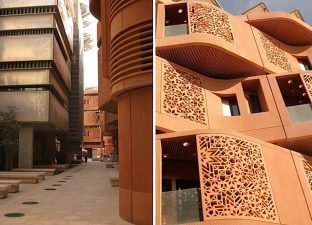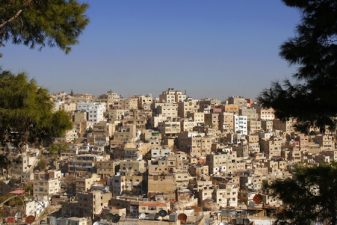 Energy subsidies keeping petrol and electricity prices low in the Middle East are jeopardizing the chances of renewable energy projects
Energy subsidies keeping petrol and electricity prices low in the Middle East are jeopardizing the chances of renewable energy projects
The Middle East may be unique for many reason- the stunning souks, the hospitality of the people and explosive political mentality- but they are probably known for just one thing: oil. Indeed, Gulf nations have emerged from the wilderness and built entire economies and industries around their oil wells. The steady supply of cheap energy also means that petrol prices in Gulf nations are some of the lowest in the world, with many paying under $0.2 per litre at the pump. However, according to a new report by Carboun, these low prices are negatively impacting energy efficiency in the region and undermining the commercial viability of renewable energy projects.
More Subsidies = More Inefficiency
Carboun’s report and visual guide to energy and carbon emissions in the Arab world highlights the fact that after sub-Saharan Africa, the Arab world’s economy has the lowest energy efficiency record of any region in the world. Karim Elgendy, one of the founders of Carboun which is a sustainability consultancy, told GreenProphet: “Our research found that increased energy use in resource-rich countries of the Arab world is not a result of growing economic activity. In fact it represents a wasteful use of energy that is driven by energy subsidies. As energy subsidies increase in the region, its energy use per capita tends to increase, while its economic energy efficiency tends to decrease.”
Low Costs Encourage Excessive Consumption
For example, the report found that the Arab region generates $4.6 GDP per unit of energy consumed whilst the more energy efficient European Union generates $8.1 from the same unit of energy. Oil-rich nations including Qatar, Kuwait, UAE, Bahrain, Oman, Saudi Arabia and Libya generate even less at $3.7 GDP per unit of energy. This low efficiency is partly attributed to the energy subsidies which are widespread in oil-rich nations as they keep energy prices low and encourage increased consumption by cushioning consumers from the real cost of using more energy.
Renewables Can’t Compete With Cheap Energy
Another impact of these energy subsidies is that they make renewables less attractive to businesses and consumers. Compared to the artificially low costs of electricity and petrol, renewable projects just can’t compete and that shows in the renewable energy targets in various countries in the region. As Elgendy explains, “Countries with less energy subsidies tend to have higher renewable energy targets than those with higher subsidies…”
On average, oil-rich nations such as Qatar and Kuwait plan to generate just over 3% of their energy from renewables by 2020. Other more resource-poor nations in the Arab world such as Tunisia and Algeria, however, have a more ambitious target of creating 16% of their total energy via renewables by 2020.
So not only are energy subsidies creating more inefficiency by encouraging excessive consumption, they are also jeopardizing the Middle East’s chances of embracing cleaner energy such as wind and solar. And this diversion from a more sustainable and resilient energy path is the real problem with cheap energy subsides.
For Carboun’s visual guide to energy and carbon emissions in the Arab world, please see Carboun’s latest infographic.
:: Image via Crishna/Flickr.
For more on energy use in the Middle East see:
Carbon Emissions In MENA Double Over 30 Years
Masdar’s Carbon Capture Programme Could Lead To Mass Delirium & Comas
Despite Best Intentions, Gulf Countries Can’t Quit C02
80% of Middle East and Africa Concerned About Climate Change



